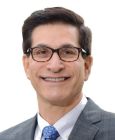Addiction
5 Adjectives That Point to a Drug Problem
When drug use is involved, what’s being said can help uncover what’s going on.
Posted February 26, 2016

It’s hard to admit you have a drug problem and even harder to admit someone you love has a problem. But it’s crucial that you do because each day that you put off facing an addiction is one more day it has to become entrenched and tougher to overcome.
How can you really know, though, when the time has come to reach out for help? One way that problem drug use reveals itself is in the words that are used to describe the person. In my work helping those with those with addictions, I know that when I hear certain words consistently, there’s a good chance substance use has spiraled out of control.
If people start using these five adjectives when talking about you, or if you find yourself using them when speaking of someone you care about, pay attention. They are clues you can’t afford to ignore.
1. Irresponsible
“You’re so irresponsible. I can’t count on you to do anything anymore. You break your promises. You’re gone for hours. You do what you want without thinking about how it affects anyone else.”
When addiction is in the picture, there’s a reason for this irresponsibility. Drug use changes the brain in a multitude of ways, and one is that it disturbs signaling in regions related to executive functions. That means the ability to do things such as make decisions, control impulses, problem-solve and plan is diminished. The person may want desperately to do the right thing but be unable to put the necessary pieces in place.
2. Moody
“You’ve been so moody lately. One minute you’re up and the next you’re down. You just don’t seem like yourself.”
Mood swings and extreme moods go with the territory in addiction. That’s because the drugs themselves prompt a range of emotions, including euphoria, giddiness, agitation, zoned-out calm, off-the-wall energy, and more, depending on the substance and the person’s reaction to it. Then there’s the time between uses, which can bring withdrawal symptoms such as anxiety, depression, fatigue and irritability. Put them together and the result is an emotional roller-coaster ride.
3. Preoccupied
“You seem so preoccupied these days. It’s like you’re not really here, even when I’m talking to you.”
There’s a lot going on below the surface for an addicted person. As they continue use, reward centers in the brain begin to be activated not just by the drug use but by the anticipation of it. That means all the things they associate with their drug use — places, people, smells, sounds, sights — trigger powerful cravings that distract them from things that used to matter, including relationships. The world begins to narrow to thoughts of the drug and how to get the next fix.
4. Dishonest
“I used to be able to trust you. Now I can’t believe a word you say.”
Lying, stealing and other forms of dishonesty can become self-preservation for those with addictions — not only a way to try to avoid the disappointment and contempt of others and the shame it brings, but also a way to keep alive a habit that mind and body are screaming is essential.
The addicted person may assure a loved one they never use drugs, for example, when in reality their use is snowballing. Or they may rationalize dipping into a relative’s purse with a “just this once” logic. The dishonesty isn’t something they reserve for others; they will lie to themselves about the depth of their addiction rather than face the frightening truth.
5. Unhappy
“You used to be so upbeat and fun. Now nothing seems to make you happy.”
That first use of a drug may seem fantastic, but here’s a sad reality: The more you use it and the more euphoria you feel, the more your brain adjusts to handle the overflow. The reward system is actually reset, and as a result, the ability to feel pleasure from the drug — or from anything else in life, for that matter — is dampened.
Not only that, the drug use sets in motion an “anti-reward” process, making the person much more sensitive to stress and leaving them feeling miserable when the drug is not used.
So what happens? The person begins to use more of the drug to stave off the uncomfortable feelings and to try to recapture that first euphoria. But that leads to even worse cravings and withdrawal, which leads to more drug use — and the vicious cycle continues. Keeping misery at bay becomes the increasingly elusive goal. No wonder happiness seems to be no part of the picture for those deep in addiction.
Dealing With Addiction
These five adjectives are hard to hear, but acknowledging the meaning behind them can be the first step toward reclaiming health and happiness.
If you see someone you love in these words, you can help get them back on track by supporting without enabling and by encouraging them to talk honestly and without fear of censure. Remind them of these facts:
- Research points to addiction as an acquired disease of the brain, not a personal failing or moral weakness, and it can be treated.
- Multiple treatment options are now available including 12-step offerings and 12-step alternatives, medication-assisted treatment, and a variety of therapies that can help the person uncover the source of their drug use and begin to heal the damage done to their brain.
- A person doesn’t have to hit rock bottom or feel “ready” before they can overcome an addiction. Research proves, in fact, that the all-important motivation needed often comes as part of treatment, not in advance of it.
If you see yourself in these five adjectives, allow yourself to believe that change is possible. After all, 23 million people are in successful recovery from addiction in the U.S. It’s a good bet these words once applied to them too.
David Sack, MD, is board certified in psychiatry, addiction psychiatry and addiction medicine. As CMO of Elements Behavioral Health, he oversees a network of mental health and substance abuse treatment centers that includes Promises luxury rehab in California and The Ranch rehab in Tennessee.




